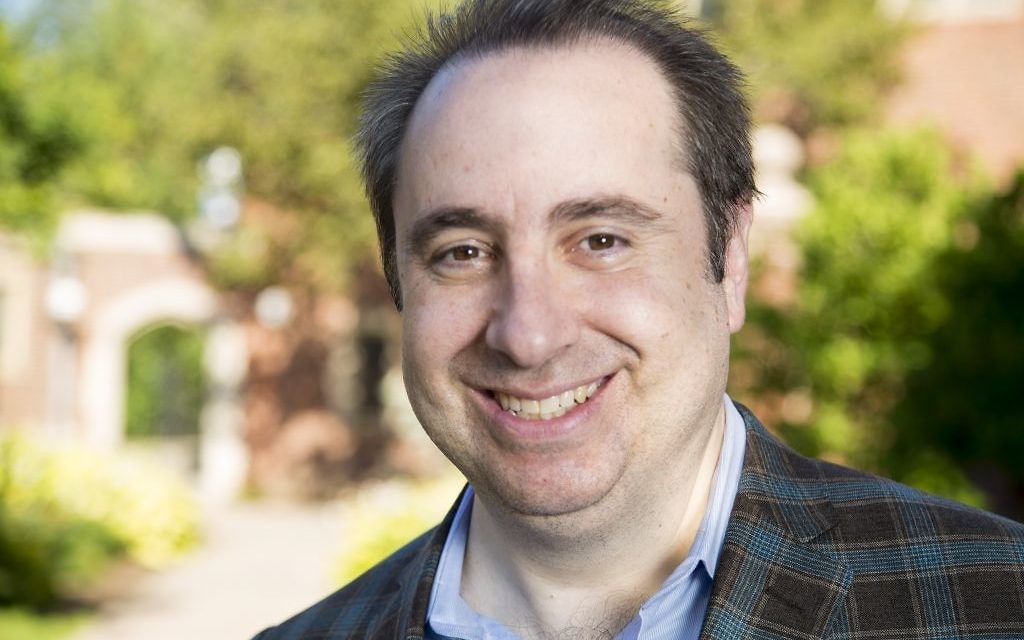2-Week Institute Preps Students for College, Beyond
The Tikvah Fund is looking for high school seniors and juniors who want to dive deep into how their Judaism relates to the modern world.
The Tikvah Fund is looking for several dozen high school seniors and juniors who want to dive deep into how their Judaism relates to the modern world before they get to college, where the atmosphere can be hostile to Judaism and Israel.
Rabbi Mark Gottlieb, the Tikvah Institute for High School Students’ dean and founder, said he hopes some of those students come from Atlanta. “We’d love to see more students from the Atlanta area,” he said. “It has such a rich Jewish culture and intellectual life.”
Tikvah has run an intensive summer program for about eight years and mostly drawn students from day schools, including one from the Weber School. Now, with funding from the Maimonides Fund, Tikvah is launching the parallel Maimonides Scholars Program, a two-week, immersive summer institute that aims to draw 60 Jewish students from public and non-Jewish private schools.
Get The AJT Newsletter by email and never miss our top stories Free Sign Up
“The Maimonides Scholars Program is training the next generation of Jewish thought leaders through this program, which will offer dialogue and debate around key issues facing our students and young adults today — the intersection between their religion and the modern age,” Rabbi Gottlieb said. “The goal of our program is to train these students to take on leadership positions in the Jewish community on campus and beyond. In order for them to be leaders, we’re teaching them a broader base of knowledge and wisdom through history, politics and philosophy.”
The program runs from June 24 to July 8 at Yale University and features lecturers such as Rabbi Gottlieb, Daniel Gordis, Rabbi Jacob Schacter, Ronna Burger and Shuli Taubes. It is open to high school boys and girls who love open debate and discussion about all kinds of issues, including Israel.
Students “will be introduced to a robust version of the Zionist narrative,” Rabbi Gottlieb said, “but we love when students challenge positions.”
Students do not need a specific Jewish education or any formal Jewish education to succeed in the program, he said. “If you love reading, whether heavy philosophy or a daily newspaper, if you like ideas expressed in words in written form, you have a high chance of success in the program.”
Maimonides scholars should be people who take ideas seriously and think about the world in a broader sense, he said, not students who are just trying to tick off boxes on their college applications.
“They know they’re Jewish, and they’re curious about what that means in their life,” Rabbi Gottlieb said.
Applications are available at www.MaimonidesScholars.org and are due Feb. 16. The cost of the program, including books, other materials, food and housing, is $400, and need-based financial aid is available.
In addition, the program is running an essay contest on the what it means to be American and Jewish. The 750-word responses are due Jan. 22. The winners get scholarships to the Maimonides Scholars Program, plus $5,000 for first place, $3,000 each for three runners-up, and a travel stipend for anyone given an honorable mention.
The program will be a success if the students who participate go on to become leaders in their Jewish communities on campus and beyond, and Tikvah has resources, programs and connections with college organizations to help the students find places as contributors to the flourishing Jewish people, he said.
To achieve those returns, Tikvah and the Maimonides Fund are ready to make a long-term commitment to the new institute, although this summer is a pilot project.
“We don’t see this as a one-shot deal,” Rabbi Gottlieb said. “We want to deepen understanding until our students have a good sense of what our tradition is teaching.”





comments